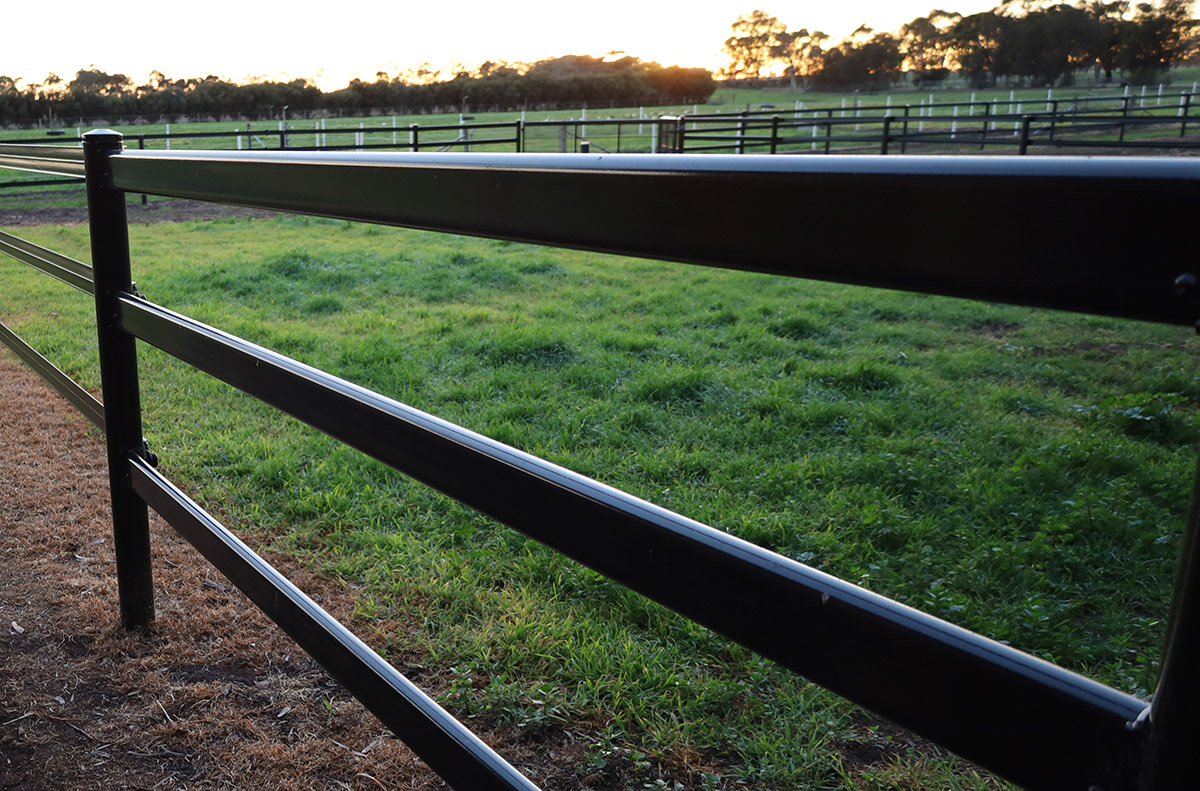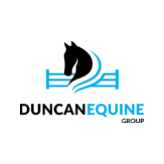If you’re on the fence (pun intended) about which material to use for your paddocks, you’ve come to the right place. In this article, we’re diving into the world of fencing to explore the ups, downs, and roundabouts of steel, timber, and plastic posts.
Plastic Fence Posts
In the busy equestrian life, plastic fence posts can be a breath of fresh air. It’s the low-maintenance option that gives you more time to spend with your horses and less time worrying about fence upkeep. Duncan Equine Group’s Premium PVC Fence Posts and the Redbuck Recycled Polyethylene fencing solutions are a testament to this, offering ease without compromising on quality.
Plastic fence posts resist both the UV rays of a blazing sun and the moisture of a rainy season. They offer a convenient installation process; they’re lightweight and can be easily handled, making them a great choice for those looking for a DIY-friendly option!
When it comes to plastic fence posts – not every post is made equal. It is essential to choose a high-quality plastic fence post to avoid issues with durability, temperature sensitivity, and environmental impact.
If you’re looking for a post that ticks boxes for sustainability, the Redbuck Recycled Fence Posts are a good option as they are manufactured entirely from 100% recycled materials.
If you won’t budge when it comes to quality, the Duncan Equine Premium PVC Fence Post is for you – this post is made from co-extruded PVC and ASA material which is the best-rated outdoor plastic for UV resistance. It has a thick virgin PVC wall to give strength and rigidity. This post can withstand the post ramming method of installation in any terrain – giving it the edge over other plastic fence post options. For ultimate ease, lightweight manoeuvrability, and durability you can’t look any further than the Duncan Equine Premium PVC Fence Post.
The plastic post is an excellent choice for those looking for a balance between upfront costs and future savings. While it may be more expensive than timber initially, its low maintenance needs and longevity provide a cost-efficient solution in the long term.

Steel Fence Posts
Steel fence posts are the Hercules of the fencing world, offering strength and longevity. Steel posts are resistant to rot, termites and they’re fireproof to boot. Steel is also a safe option for horses as it’s sturdy and doesn’t splinter. They’re a good pick for those looking for a low-maintenance solution that can withstand the test of time. While they’re incredibly durable, in salty environments, or without proper coatings, they can be susceptible to rust.
Steel fence posts represent a higher initial investment compared to other materials, and installation might require more effort and equipment, which leads to higher labour charges. However, their longevity and minimal maintenance requirements often translate into cost savings in the long run.

Timber Fence Posts
Timber does require some TLC to stay in top condition. Regular staining or painting, along with checks for rot or insect damage, will keep your timber fence looking fresh. Timber is susceptible to fire, flood, and termite damage. Additionally, when horses chew on timber, they not only damage the post but also can ingest harmful chemicals used in treating the wood. For those who are eco-aware, it is not the most sustainable option for fencing.
Timber fence posts are generally more affordable than steel and PVC, making them a cost-effective option for those on a budget. However, keep in mind the ongoing maintenance and time costs, such as painting and repairs, to ensure your timber fence remains a cost-effective solution over time.
Choosing the right fencing materials for your equine property is no small feat, but armed with the right information, you can make a decision that suits your style, budget, and, most importantly, your horse’s safety.





